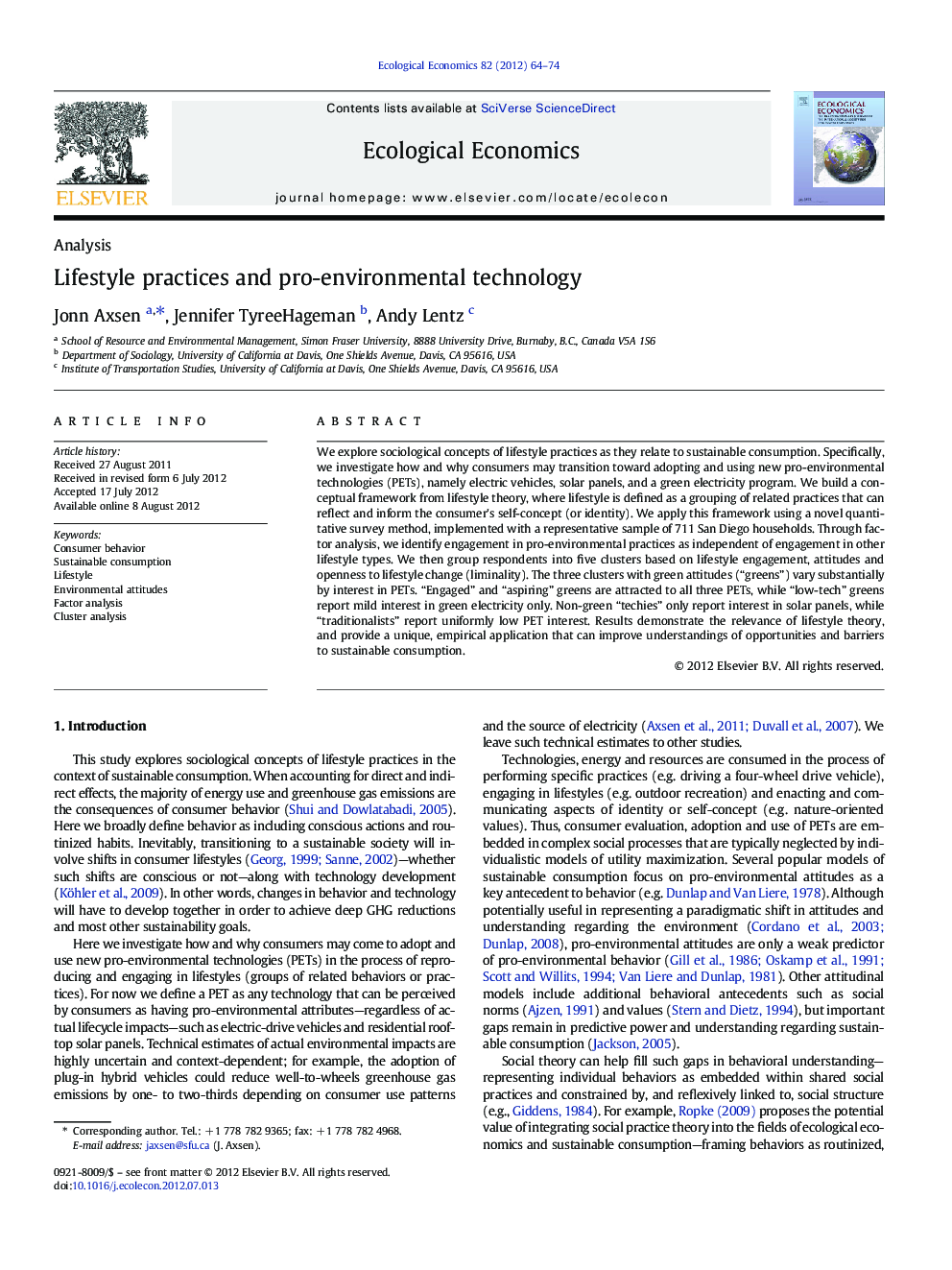| Article ID | Journal | Published Year | Pages | File Type |
|---|---|---|---|---|
| 5050188 | Ecological Economics | 2012 | 11 Pages |
We explore sociological concepts of lifestyle practices as they relate to sustainable consumption. Specifically, we investigate how and why consumers may transition toward adopting and using new pro-environmental technologies (PETs), namely electric vehicles, solar panels, and a green electricity program. We build a conceptual framework from lifestyle theory, where lifestyle is defined as a grouping of related practices that can reflect and inform the consumer's self-concept (or identity). We apply this framework using a novel quantitative survey method, implemented with a representative sample of 711 San Diego households. Through factor analysis, we identify engagement in pro-environmental practices as independent of engagement in other lifestyle types. We then group respondents into five clusters based on lifestyle engagement, attitudes and openness to lifestyle change (liminality). The three clusters with green attitudes (“greens”) vary substantially by interest in PETs. “Engaged” and “aspiring” greens are attracted to all three PETs, while “low-tech” greens report mild interest in green electricity only. Non-green “techies” only report interest in solar panels, while “traditionalists” report uniformly low PET interest. Results demonstrate the relevance of lifestyle theory, and provide a unique, empirical application that can improve understandings of opportunities and barriers to sustainable consumption.
⺠We explore lifestyle practices and sustainable consumption regarding pro-environmental technologies (PETs). ⺠We apply our conceptual framework to San Diego survey data to identify consumer lifestyle patterns, openness to change and attitudes. ⺠Consumers' PET interest is associated with lifestyle practices relating to technology and the environment. ⺠Electric-vehicles, solar panels and green electricity programs seem to engage consumers with different lifestyle clusters for different reasons. ⺠Lifestyle theory is a useful concept for sustainable consumption, but is currently understudied.
